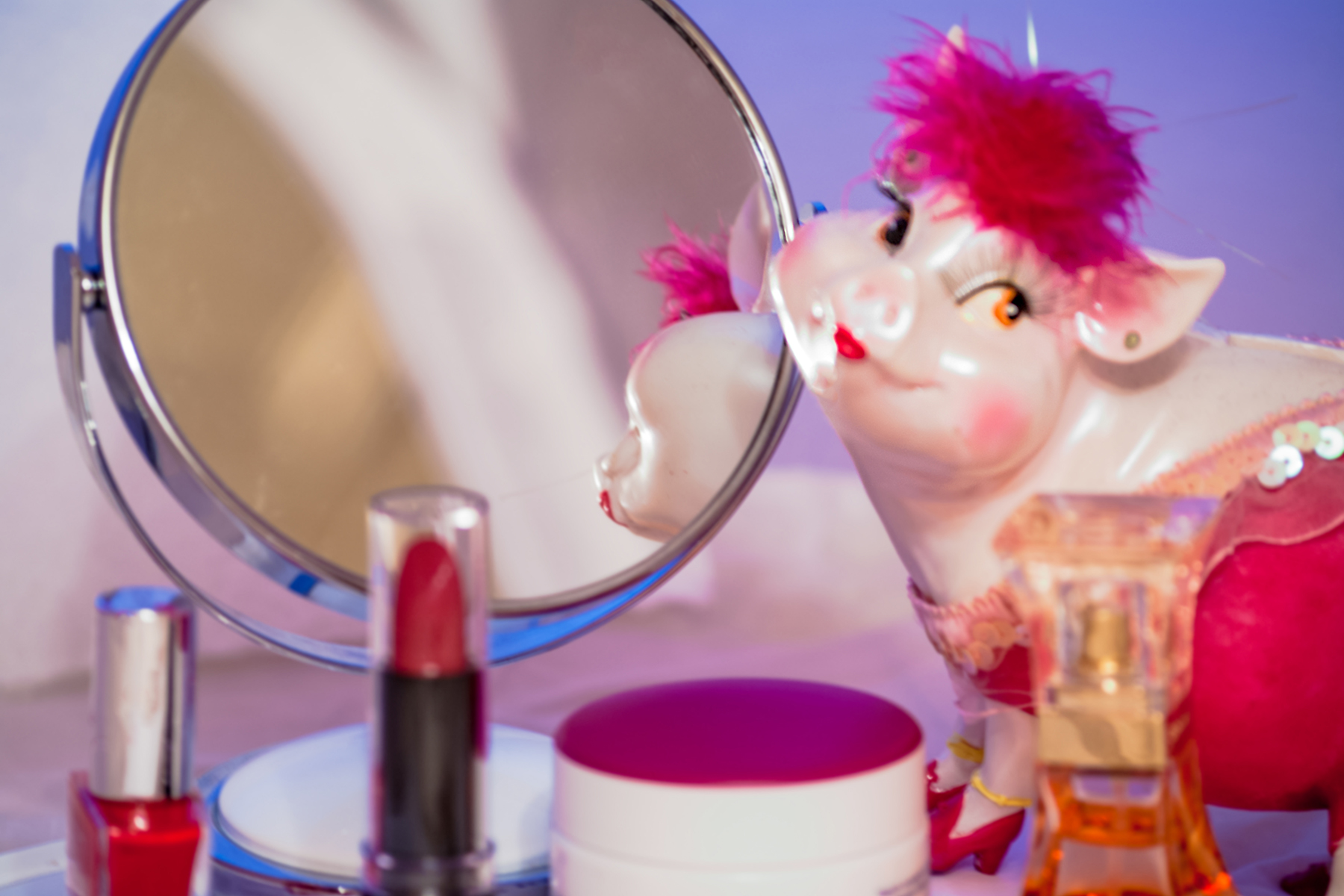What do people say about you when you leave the room?
Perhaps you can answer that question with accuracy….perhaps you’re not sure ….or perhaps you worry about what the real answer might be?!
Whatever your feelings are on the answer you can be sure that decisions have been made, judgements confirmed and people pigeon-holed within moments of making that crucial first impression. According to Malcolm Gladwell, in his book Blink: The Power of Thinking Without Thinking, we make up to 11 judgements, many of which happen subconsciously.
There is a reason companies spend a fortune on establishing, maintaining and protecting their brands. A good brand guides an organisation in what it does and how it does it. Customers’ perception of that brand determines how successful the business is. In fact a brand is often the magic ingredient – the competitive edge that makes people choose one product above another. However, if a business isn’t purposeful about the way it manages perceptions of the brand, it may have a totally different and far less successful outcome.
A personal brand is no different.
Some people find the word ‘brand’ a little unpalatable or even cliché – what we mean here by personal brand is simply being true to the values and principles that make you who you are.
A strong personal brand takes time to establish, consistent effort to maintain and most importantly, rigorous self-awareness and humility to drive forward.
Soft Skills = Hard Results
Throughout school and beyond we are told to focus on getting qualifications.
85% of your financial success is due to your ability to communicate, negotiate and lead.
Only 15% is due to technical knowledge.
According to the Carnegie Institute of Technology soft skills are fundamental in helping us achieve our goals. Research carried out by Daniel Goleman suggests that 67% of a leader’s success is due to their Emotional Intelligence (EQ)
EQ, not IQ, is the differentiator of success.
Emotional Intelligence starts with self-awareness and is one of the most effective ways of improving your impact and results. Knowing how the brand you project impacts others will determine how effective you are at influencing and therefore creating the outcomes you want.
Already nailed it? Really?
Many successful, seasoned professionals feel confident that they can, and do, project a good brand. Whilst this might be true some or even most of the time it is incredibly difficult to maintain a consistently strong brand.
At DRIVE we have a simple test for this which in our experience, 8 out of 10 these highly experienced and influential C-Suite professionals fail – and many are shocked at what they discover.
Whilst it’s always better to make a good first impression, a strong personal brand will enable you to maintain your influence and we believe that it’s never too late to create the impact you want.
So, rather than wondering what they’re saying about you when you leave the room read our 15 Steps to building an effective Personal Brand.
- Be Purposeful.
A brand isn’t an accident. It is curated over many years, it uses the values you hold dear, is a ‘conscious competence’ to be applied over and over again until it becomes an unshakeable part of who you are. It requires investment of both time and energy – even when you have precious little of either. It may begin as an ambition and with repeated, purposeful application it becomes simply who you are.
- Be Authentic.
Push yourself to understand your true motivations, principles, fears and rivalries. Once you can be honest with yourself about your own values, abilities and shortcomings (remember: self-awareness is key!) then you are more likely to be able to remain true to yourself with confidence. To be honest with someone else – to look them in the eye and give them feedback that they might not like – takes real confidence. If you aren’t confident about yourself then your body will sabotage you by releasing unhelpful hormones that will spill out in your body language.
- Pursue Excellence.
Your brand is the very best version of yourself that you can design. It represents your ‘Berocca’ you (You – but on a really good day!) As Stephen Covey says in his 7 Habits book those who seek excellence will always be looking to improve or as he puts it, finding ways to ‘Sharpen the Saw’. It is what you aspire for people to say about you and for you to be able to honestly say about yourself. It requires that you don’t hide from unpalatable truths about yourself, rather you acknowledge these then act to change.
- Be Self-Aware.
Know not only how you’re perceived by others but crucially know what pushes your buttons. Take a good look at all your behaviours, beliefs and motivations and truly understand them. Know what causes you to lose control and how that impacts on yourself and others. Actively elicit feedback from friends and foe to understand what people see when they look at you. This takes courage. If your opinion and theirs aren’t congruent then there lies the opportunity.
- Be Consistent.
Recession, office politics, a stressful home life, huge sales targets…..there will always be external influences that might have the power to dilute the impact you have – to dilute the brand that you are. An unshakeable brand is the one people reach for when uncertainty abounds. How can you ensure that you are consistent and can keep your head when ‘All about you are losing theirs’ (Rudyard Kipling, IF)
- Be Resilient.
The ability to bounce-back from any setback is an enviable quality – one that enable the best leaders to withstand incredible amounts of pressure and stress. It is also a quality that can be learned (as demonstrated by Martin Seligman in a project at Pennsylvania University). By building your own bespoke toolkit for improved resilience you will ensure that you have the ability to protect and maintain your performance regardless of the environment and prevailing conditions.
- Be Positive.
There is a reason that world-class athletes use positive visualisation techniques as part of their training. Looking for – and imagining – the most positive outcome trains your brain to create an improved outcome. Choosing to be actively positive also ensures that you’re less likely to be unconsciously pushed into your ‘fight or flight’ response by your sympathetic nervous system which is constantly primed to protect you from threat…perceived or real.
- Be Energising.
Being internally positive is not enough. Make sure you’re someone that people chose to spend time with. This is also known as being a Radiator because you ‘radiate’ warmth, positivity and energy. Energising people influence consciously and their impact is always useful. The opposite behaviour to a Radiator is that of a Drain – thus called because of their ability to drain all energy, positivity and hope out of a situation. Many people may accidently dip into Drain behaviour as a result of any number of factors. The bad news is that Drains are as contagious as Radiators. Find strategies to remain a Radiator.
- Be Adaptable.
Emotionally Intelligent people are quick to adapt their own behaviour to get the best from every relationship. Linked to confidence, adaptability relates to how open you are to the strengths of others and how open you are to learning from opposing styles to ‘value the differences’ (Covey) and create fantastic, new results. Adaptability prevents people from becoming entrenched in less agile thinking patterns and leads to creativity, innovation.
- Be Receptive.
Stay open to others thoughts and opinions, even if you have little respect for that person. Listen fully and without prejudice. Brands that sustain a competitive advantage recognise that great ideas can come from anywhere and anyone. If you only listen to people with status and to those you like then you’ll be fishing in a very shallow pool.
- Be Empathetic
We all like to think that our view of the world is the best, don’t we? That our way of thinking and our values and our habits lead to the best outcomes. It’s only natural that this happens. Once you’ve truly listened, a strong brand can better understand what good looks like from another’s position and – if appropriate – amend their own opinion as a result. Truly effective brands can do this even when they are in conflict with the other person.
- Be Observant.
With 55% of our communication coming from non-verbal signals we could all improve our impact by paying more attention to body language. What a great brand can do is watch and notice others whilst also managing their own non-verbal ‘spills’ – the incongruence between what is said and what the other 55% is communicating. How often have you noticed what your face is doing in a long meeting? A strong brand pays attention and knows what signals to look for to indicate that their message isn’t ‘landing’, thus saving time and energy and helping to secure the best outcome.
- Be Humble.
Authentic brands aren’t concerned about always being right, they are happy to accept that they might be wrong. They seek to understand how they might be contributing to an un-helpful situation and seek to address what they can change about themselves before looking for change in others. Crucially, they do not let their ego dictate their response.
- Be Brave.
The best brands take risks and accept that some will work and some won’t. What they don’t do is stay safe. Being brave isn’t always about making massive jumps into the unknown, sometimes the biggest risk is simply to have a conversation (with yourself or another) that involves telling the truth that has long been hidden. You can’t expect to achieve excellence if you remain in your comfort zone so develop strategies that enable you to improve your comfort with discomfort.
- Be Responsible.
Above everything, a great brand takes responsibility for its own choices, decisions, goals and results. It doesn’t seek to blame others when things don’t go as planned and it celebrates and rewards itself when they do.
Journey works with a number of complementary businesses and individuals. This blog was written by Becky Tilney of DRIVE UK Consulting Ltd. DRIVE support their clients in creating their bespoke personal brand. Both through workshops and 1-2-1 coaching they work to embed this brand, support its consistent application and to help deliver impactful results. A brand requires constant attention. DRIVE advises clients to regularly review their performance against these 15 key indicators of personal brand success.
TWEET OR TWO
To ensure you stay in the loop and receive our news, updates and general musings hot off the press, follow us on Twitter now. We promise not to bombard you!




